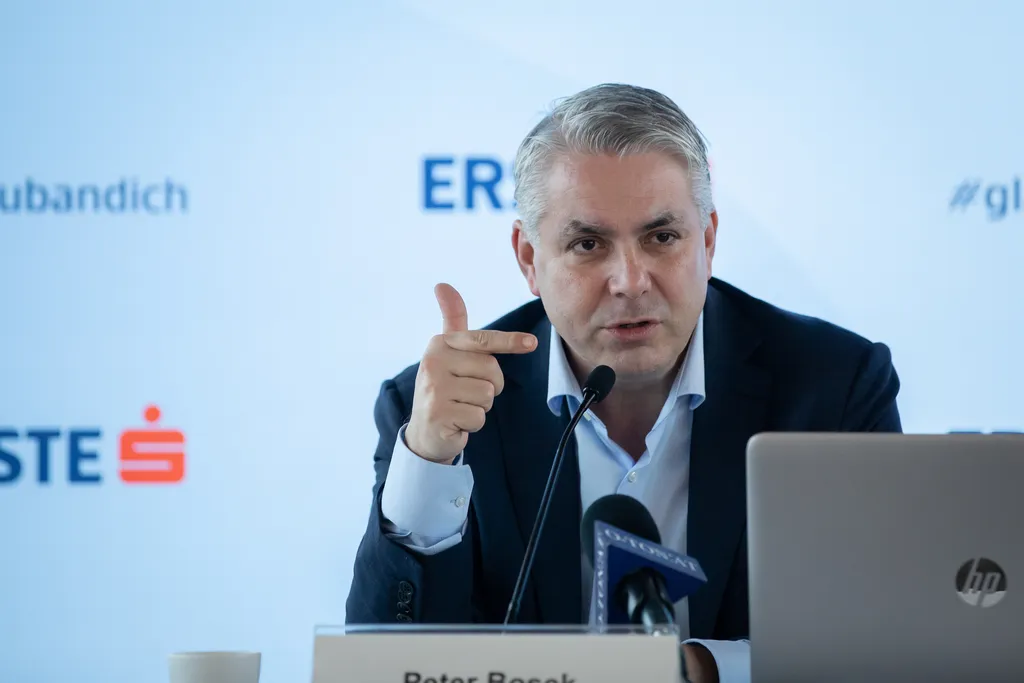27.11.2019
Social Housing Initiative der Erste Bank:
200 homes for people at risk of homelessness thanks to a joint initiative with social organisations and housing property developers
Erste Bank is providing deposit-free access to affordable housing for clients of neunerhaus, Volkshilfe and other social organisations in Vienna, covering the financing costs for tenants.
The many faces of homelessness
The challenges associated with providing people with adequate appropriate housing are getting greater and greater. Despite having full-time jobs, more and more working people are still not earning enough to be able to afford a suitable home. In Vienna, the gross costs per square metre for rented housing rose by 42 percent between 2008 and 2018, and are currently 8.25 Euros[1] – a trend which continues to rise. “Homelessness is thus affecting increasingly broad sections of society and has many different faces. The homelessness aid facilities definitely need additional support and new approaches,” says Peter Bosek, chairman of the management board at Erste Bank. In recent years, the number of registered homeless people has risen by 22 percent to 21,600.[2]
One’s own four walls to start a new, independent life
The Erste Bank’s Social Housing Initiative seeks to provide as much help as possible to affected people so that they can live independently again. The homelessness aid is usually based on a graduated system: Homeless people are initially given an emergency place to sleep, and are then sent to a transitional housing facility. During this time, the idea is to help them take control over the problems which caused their homelessness in the first place. Securing their own home is thus the end of the support process. “Social housing is the reverse principle. Securing their own home is the start of the process, as it provides a basis to get their lives back on track,” says Astrid Kratschmann, housing expert and project manager for the Social Housing Initiative. The support provided by a social organisation then continues to run in tandem, but is separate from the home. Once the support has ended, the lease agreement remains in effect, and the residents stay in their home. As such, the social housing model offers long-term, sustainable prospects right from the outset.
The social support organisations estimate Vienna to have an acute annual requirement of approx. 300 – 400 homes for people in precarious housing circumstances. The aim of the Erste Bank’s Social Housing Initiative is to finance a major part of this requirement.
Taking responsibility
Erste Bank und Sparkassen were founded 200 years ago to give everyone access to wealth. Today, 200 years later, the world looks very different, but: “Just like back then, there are still people in society who are financially distressed, and who have no roof over their head. We consider it our responsibility to support these people and break down the financial barriers to give them a better future,” adds Kratschmann.
How does social housing work?
- Housing property developers provide relevant housing based on agreements concluded with the Erste Bank.
- People affected by acute homelessness contact neunerhaus, Volkshilfe or other social organisations.
- Once the demand and social requirements have been analysed, neunerimmo takes charge of matching home-seekers with suitable housing.
- Once the tenant has been matched with a home, Erste Bank provides the necessary financial contribution.
- The tenants are looked after by social workers even after moving into the home. They enter into a permanent lease agreement.
- The tenant is able to start paying the financial contributions to the housing property developer at any time, ending Erste Bank’s involvement.
- If the tenant moves out of the property, the home can then be reassigned to new tenants as part of the project.
%5B1%5D Statistik Austria, Microcensus 2018
%5B2%5D Statistik Austria, EU-SILC, registered homelessness
